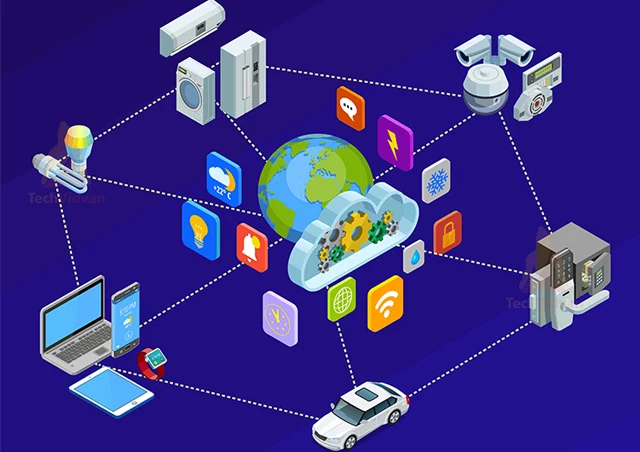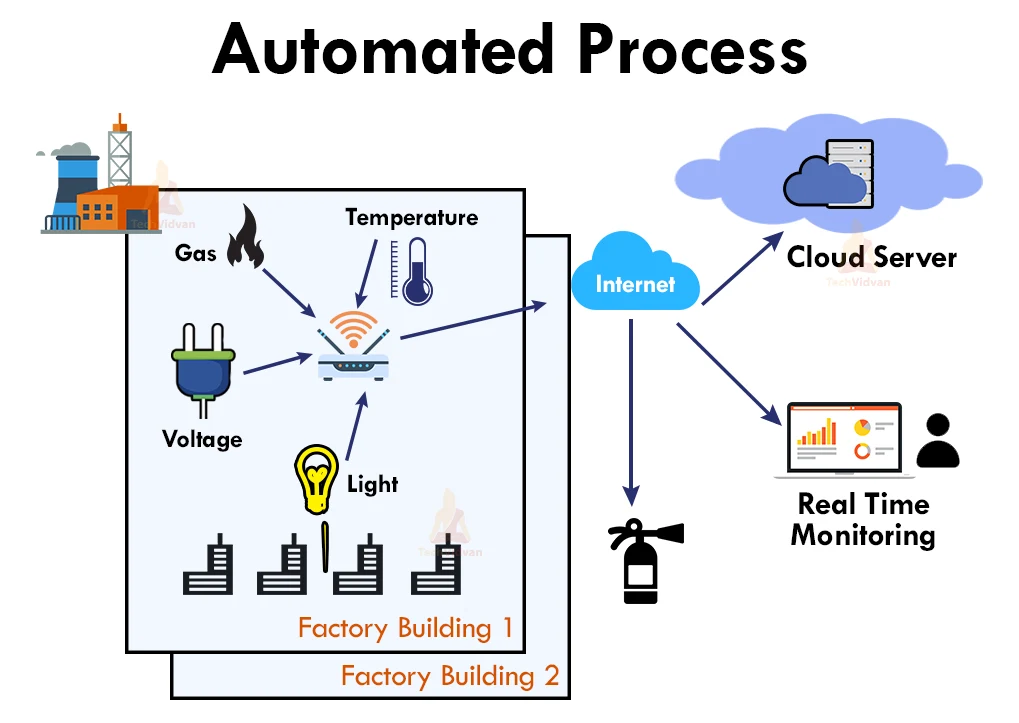IoT Applications in Energy Sector
In the energy sector, Iot has diverse applications. IoT provides a wide variety of control and design functions in energy consumption and management. Smart Energy Systems are used for residential and commercial purposes.
In this article, we will look at some of the major applications of IoT in energy resources.
1. Residential Energy
Rising technology means costs in consumption also increase. IoT offers ways to reduce consumption and reduce the costs in energy usage. For example, IoT enables lightning systems to switch off or dim the lightning when they sense the absence of human beings.
2. Commercial Energy
IoT energy management in the commercial sector involves the reduction of energy consumption. Iot offers systems that monitor consumption and reduce usage in an effective way. It helps both small and larger corporations. It helps in the optimization of power and at the same time improves the functionality.
Commercial Energy manages the energy resources by providing cost effective methods. Iot handles the issues in the same way business organizations interact with business networks to offer solutions.
3. Reliability
The solutions that Iot ecosystems provide are reliable and effective. They benefit the organization by not only managing the resources but also by offering cost effective strategies. Methodologies offered by IoT technologies detect and create alerts before the onset of a threat so the authorization can take necessary precautions to handle the emergency.
Applications of IoT in Energy Generation
4. Energy system management
Energy management is a process through which organizations ensure the energy flow is conservative, efficient and less harmful to the environment. IoT is helping in building solutions that conserve energy. Intelligent energy management systems monitor the energy sources for any business.
Methods such as reduced energy bills, reduced carbon footprints and increased energy efficiency all contribute to an optimized energy consumption.
5. Automated process
Automation of processes in an industry involves using sensors and webcams for monitoring and security purposes. This reduces the need for human intervention. IoT technology monitors machine performance to ensure better production quality. In addition, automated processes raise alerts and send signals before the occurrences of any incident, this increases on-site safety.
6. Disaster prevention
IoT proposes solutions to reduce hazards and increase safety for both workers and the power plants. Authorization installs sensors all around the plant to notice any leakage or damage. The sensors send alerts to a mobile application and the staff takes the necessary precautions. Instead of waiting for the plant to cause serious injuries and irreversible losses, IoT notifies the staff members beforehand of any risks. This helps in ensuring smooth running of processes and increase in safety.
7. Increased efficiency
IoT processes increase the productivity of power plants and manage the waste generation by any industry.
Fully automated boilers contain oxygen regulators that ensure the complete burning of fuel. This way it leads to less emission of greenhouse gases such as carbon monoxide and methane. Smart grids are reducing the severe impacts of energy consumption by factories and industries.
8. Smart Energy Meters
Smart energy meters allow the usage of energy more effectively which leads to lesser consumption and better performance. These are similar to the traditional meters but in addition smart energy meters interact remotely with the utility. It records and sends information every 15 minutes.
In case of a power outage, the smart meters notifies the user immediately. It quickly dispatches members to resolve issues and get back on track.
9. Zero Net Energy Buildings
IoT is also helping build concepts such as zero net energy buildings. Renewable energy resources are the only source of contribution for energy consumption in such buildings. Sources such as solar and wind generate power and electricity in these buildings. This leads to less dependency on non-renewable resources.
10. Smart Decision Making
IoT opens doors for better opportunities with effective solutions. It helps consumers and users make better decisions about their power consumption. It helps authorities control energy usage effectively.
Challenges IoT faces in the Energy Industry
Despite the plenty of advantages IoT has to offer in the energy industry it also faces severe threats and challenges.
Security threats are the biggest concern any IoT system faces. There are still outdated systems in use currently that lead to connectivity problems.
Conclusion
Thus IoT plays a large role in energy management in both the commercial and residential sector. We will look into further application of the internet of things in our upcoming articles.



